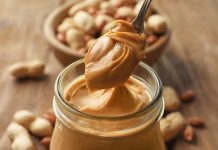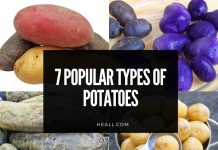Corn is universally popular as a cereal and snack, both for its taste and uses. It is rich in nutrients with many health benefits.
Corn, also known as Indian corn or maize, originated in South America or Mexico, and the American Indians taught the Europeans about their indigenous grains. To the native people of the American southwest, corn is not just a food item, but an integral part of their sacred imagery. Christopher Columbus introduced corn to Europe. It has been used through the centuries not only for food, but also as feed for livestock and raw material for handicrafts. It is today used widely all over the world.
Table of Contents
Contents of Corn
Corn is full of nutrients. A rich source of fiber, one cup of corn gives almost 19% of the daily requirement of an individual’s requirement of dietary fiber. It is also rich in starch.
Corn contains thiamine or vitamin B1; one cup has one fourth or about 24% of the daily requirement. It also has vitamin B5 or pantothenic acid and folate.
Beta– cryptoxanthin, a carotenoid with antioxidant properties is found in oranges, peaches, papayas, tangerine and bell pepper, but is the highest in corn. Corn also has the phytochemical lutein, and antioxidant vitamins C and E.
Minerals like iron, potassium, phosphorus, magnesium, zinc, iron, copper, manganese and trace elements like selenium are found in corn.
Health Benefits of Corn
The composition of corn endows it with many health benefits. The high fiber content prevents constipation and colorectal cancer.
Antioxidants neutralize the effects of harmful free radicals that cause diseases like cancer. The antioxidant betacryptoxanthin prevents lung cancer, while lutein prevents age related vision loss. Antioxidants slow cognitive decline and conditions like Alzheimer’s. Vitamin C boosts immunity and fights infections, while the presence of vitamin E gives corn anti-aging properties.
Thiamine is required for boosting memory, cognitive functions and nerve health, and pantothenic acid is essential for energy, as it is linked to carbohydrate, protein and lipid metabolism. Folate is an essential requirement, specially during pregnancy.
The phosphorus helps to maintain normal growth, kidney function and bone health. Magnesium boosts the latter, as well as regulates the heart rate. Finally, corn lowers LDL cholesterol and guards against cardiac diseases, diabetes and hypertension.
Culinary Uses of Corn
Corn is used in different forms: as cornflakes for breakfast cereal, cornflour for thickening, popcorn as a snack, corn kernels for cooking and corn oil as a cooking medium. No matter what the form, the health benefits are the same; it is the additives that make it a junk food.
Corn is a popular and healthy food worldwide. It is rich in minerals and vitamins like potassium and vitamin B, as well as antioxidants. Therefore, it prevents degenerative conditions, including some forms of cancer and aging.
Sources:
- Jensen, Dr. Bernard, Foods that heal: A Guide to Understanding and Using the Healing Powers of Natural Foods——Health Harmony Publishers, 2004.
- Bakhru, Dr. H. K. Healing through Natural Foods—Jaico Publishing House, 2006
- Naturalfoodbenefits.com, Corn, (accessed January 13, 2011).
- Whfoods.com, Corn, (accessed January 13, 2011).
- Organicfacts.net, Corn, (accessed January 13, 2011).



